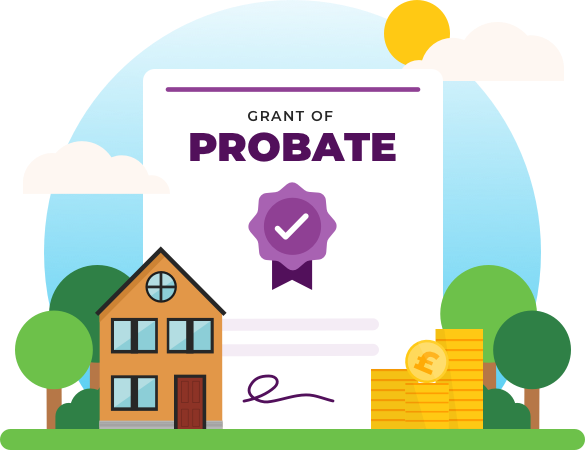Yes, if the estate is worth more than £5,000, you must go through the probate process. Even if you have the power of attorney (POA). Many people often get these terms mixed up and believe that having POA means you don’t need to apply for probate.
POA gives someone the power to make decisions on your behalf in later life when they cannot. Once the person who gave permission (donor) has passed, the POA is no longer valid.
Just because you had a POA doesn’t mean you will automatically receive any inheritance or even be the personal representative. Therefore probate will still be required, unless under £5,000 in England, Wales and Scotland. For Northern Ireland, it is under £10,000.
Power of Attorney vs Probate
Power of Attorney
This is a legal document to give a person authority to act on someone's behalf. Anyone can get a POA throughout their life. Most people tend to get one, in case they lose the mental capacity to make their own decisions. You can choose anyone to be your POA and they don’t have to be a UK resident.
According to the UK Government, they must meet the following 2 conditions:
- Be over the age of 18
- Have the mental capacity to make their own decisions
Probate
Probate is the process upon which the personal representative gains the grant of representation. This is either the grant of probate or the grant of letters of administration (if no will is present).
These documents authorise the representative to administer the deceased person's estate. Specifically, they will share assets with beneficiaries, such as property, money, and personal items. They will also pay any debts the estate owes as well as any inheritance tax due.
Read more on: What is Probate?

Compare Expert Probate Solicitors
Take the stress out of Probate
Support where you need it most
I Have Power of Attorney. Do I Now Conduct Probate?
Not necessarily. Once someone has died, the probate process can begin. Who will be settling the deceased's affairs will all depend on whether there is a will in place or not.
If a Will is in Place
If the deceased left a will stating who should be the executor, then they will have the option to conduct the probate process. Should they refuse, they will have to sign the Deed on Renunciation.
They will then need to be replaced. This is usually by another beneficiary named in the will. This process can take time.
Read more on do I need a probate?
If No Will is in Place (England and Wales)
If no will is left, the rules of intestacy must be followed. The surviving spouse or civil partner receives the first £322,000 of the estate, all personal items, and half of the estate if there are children.
The remaining half is shared among the children. If there are no children, the spouse or civil partner inherits the entire estate.
Intestate Succession
Spouse or Civil Partner
Children
Parents
Siblings
Half Siblings
Grandparents
Uncles and Aunts
Half Uncle and Half Aunts
Intestacy in Scotland and Northern Ireland
In Scotland, the key difference is the spouse or children do not automatically inherit the entirety of the estate.
In Northern Ireland the biggest difference is the threshold for inheritance. While in England and Wales it is £322,000, in Northern Ireland, the surviving spouse or civil partner receives the first £250,000.

Compare Expert Probate Solicitors
Take the stress out of Probate
Support where you need it most
Power of Attorney vs Probate Executor
Just because you have been named POA doesn’t mean you won't be named executor or even beneficiary. These roles are not exclusive to each other. In fact, in most cases, the person named as POA will be the Executor of the Will.
This is largely because they will be considered their most trusted person in life and would have handled many of the deceased's assets. So it makes sense that this would be the case upon their passing too.
Read more on: What is an Executor of Will and What do They Do?
Hiring a Probate Solicitor
The roles of POA and probate executor have their own challenges. However, probate is one of the most complex aspects of dealing with a loved one's death.
It is not a legal requirement to hire a solicitor for probate, but it is recommended. While you can handle probate on your own, an experienced probate solicitor can provide you with expert legal advice. They are well-experienced in the process and can guide you through the paperwork and legal steps.

Compare Expert Probate Solicitors
Take the stress out of Probate
Support where you need it most
How to Choose a Probate Solicitor
Simply fill in our form, answer a few questions and you’ll get up to 6 free quotes from trusted and professional probate solicitors. Once you are matched with the solicitors, it's up to you to compare probate fees and choose which company you want to use.
Picking one that is regulated by a notable regulatory body will help put your mind at ease that you are dealing with professionals.
Each company we work with is regulated by one of the following, depending on their location:
Solicitors Regulation Authority (SRA)
Law Society of Scotland (LSS)
Law Society of Northern Ireland (LSNI)
Council for Licensed Conveyancers (CLC)
Institute of Chartered Accountants (ICAEW)

